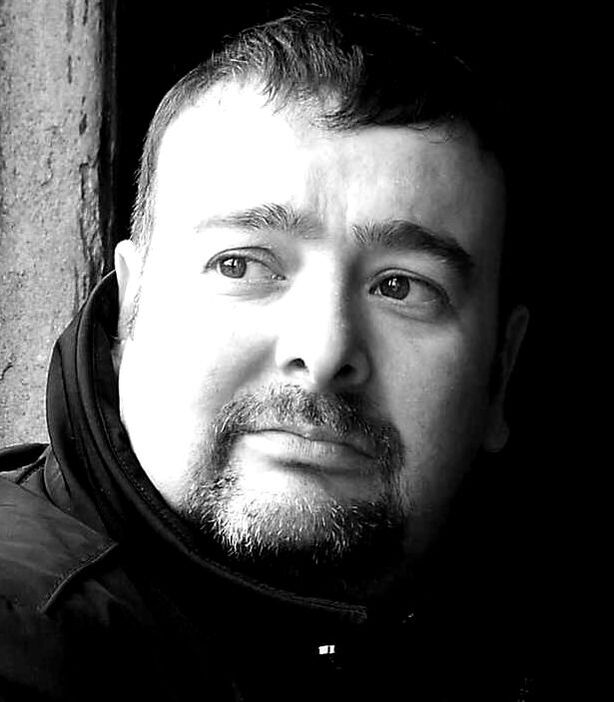
It gives me enormous pleasure to welcome crime writer, Paul Gitsham onto the website today. Paul is the creator of the DCI Warren Jones series of novels. He also has a Ph.D in molecular biology and when he isn't writing the next novel, is teaching biology to secondary school pupils.
Alex: Tell me a bit about yourself, Paul.
Paul: I was brought up in Coventry, where I lived with my parents and sister until I left for university. I guess I always wanted to be a writer. In fact, my first attempt at a book was a novelisation of the movie E.T. I had an exercise book with a picture of the little fellow on the front, and a very serviceable yellow crayon. My poor mother was a teacher, with a one-year-old, and I now realise how annoying being woken up repeatedly as you try to enjoy your first lie-in in months must have been! Eventually, she pointed out that E.T. had already been written by somebody else, and that put paid to that! However, I always had some sort of story on the go, having become an expert at purloining exercise books from school. None were ever finished.
At school, science was my thing. I loved the creative writing lessons in English, but the rest of the GCSE syllabus left me cold. I did my first degree in Molecular Biology, before doing a PhD in it, followed by a research position in Manchester. I then had a period of “under-employment” working as a receptionist in a sports centre. This was when I made my first proper attempt at writing, taking part in the annual NaNoWriMo competition to write a 50,000 word novella in the month of November. I managed 30,000 of a science fiction novel, which I continued tinkering with for the next few years. Eventually, I found a new research position in Toronto. I loved Canada, but I soon realised I’d picked the wrong lab and supervisor, and eventually returned to the UK. After a few months working for a high-street bank (essentially going through the customer database to weed out any individuals subject to international sanctions banning them from having a bank account), I took a place at Cambridge University to retrain as a science teacher.
It was then that I started pursuing writing seriously, taking writing classes as a hobby. I was still plugging away at that NaNoWriMo novel, but eventually writer's block kicked in, and I started to feel the urge to write something different. Over the Easter holiday n 2011, I started writing the first DCI Warren Jones novel. I finished it in the autumn and was so buzzed that I had finally completed a book, I immediately started the sequel. The first three novels, plus a short novella were published by what was then Carina UK (now HQ Digital) in 2014/15. There was then a hiatus of a couple of years (top tip – don’t publish everything you have in twelve months if you have a full-time job and don’t have anything else ready!). Eventually, the series picked up again. It now numbers seven full-length novels, plus four novellas, with two more full-lengths on their way.
Alex: Tell me a bit about yourself, Paul.
Paul: I was brought up in Coventry, where I lived with my parents and sister until I left for university. I guess I always wanted to be a writer. In fact, my first attempt at a book was a novelisation of the movie E.T. I had an exercise book with a picture of the little fellow on the front, and a very serviceable yellow crayon. My poor mother was a teacher, with a one-year-old, and I now realise how annoying being woken up repeatedly as you try to enjoy your first lie-in in months must have been! Eventually, she pointed out that E.T. had already been written by somebody else, and that put paid to that! However, I always had some sort of story on the go, having become an expert at purloining exercise books from school. None were ever finished.
At school, science was my thing. I loved the creative writing lessons in English, but the rest of the GCSE syllabus left me cold. I did my first degree in Molecular Biology, before doing a PhD in it, followed by a research position in Manchester. I then had a period of “under-employment” working as a receptionist in a sports centre. This was when I made my first proper attempt at writing, taking part in the annual NaNoWriMo competition to write a 50,000 word novella in the month of November. I managed 30,000 of a science fiction novel, which I continued tinkering with for the next few years. Eventually, I found a new research position in Toronto. I loved Canada, but I soon realised I’d picked the wrong lab and supervisor, and eventually returned to the UK. After a few months working for a high-street bank (essentially going through the customer database to weed out any individuals subject to international sanctions banning them from having a bank account), I took a place at Cambridge University to retrain as a science teacher.
It was then that I started pursuing writing seriously, taking writing classes as a hobby. I was still plugging away at that NaNoWriMo novel, but eventually writer's block kicked in, and I started to feel the urge to write something different. Over the Easter holiday n 2011, I started writing the first DCI Warren Jones novel. I finished it in the autumn and was so buzzed that I had finally completed a book, I immediately started the sequel. The first three novels, plus a short novella were published by what was then Carina UK (now HQ Digital) in 2014/15. There was then a hiatus of a couple of years (top tip – don’t publish everything you have in twelve months if you have a full-time job and don’t have anything else ready!). Eventually, the series picked up again. It now numbers seven full-length novels, plus four novellas, with two more full-lengths on their way.
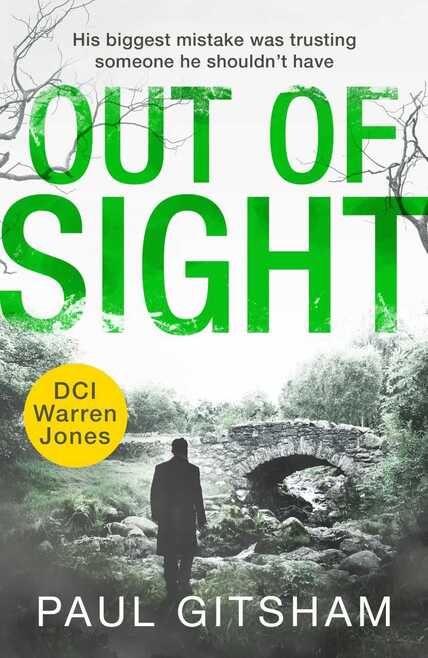
Alex: How would you describe your writing, and are there particular themes that you like to explore?
Paul: When I first started writing Warren Jones, I agonised for months about my lead character. The market was filled with brilliantly-written detectives, all with quirks or an extensive knowledge of jazz, and usually plagued by alcoholism and a disastrous personal life. With limited experience of any of that, I eventually decided that in order to be different, I should try to be normal! Warren is happily married to Susan and doesn’t have any substance abuse problems. As the books progress, we learn more about some of the tragedies in his past, but he isn’t plagued with demons. Over the years, I put him and Susan through the ringer, but fundamentally, he's a decent bloke who passes what I call the Friday night pint test – I could happily go for a pint with him on a Friday night. As much as I admire some of his fictional peers, I’m not sure I’d want to spend an evening with them!
As a scientist at heart, I love the detail of forensic procedure. As a teacher, I love to explain it for my readers. As to themes, it’s whatever is bothering me at the time: gambling addiction, modern slavery, homophobia, far-right extremism… If it makes me shout at the TV, it’ll probably find its way into a book at some point!
Paul: When I first started writing Warren Jones, I agonised for months about my lead character. The market was filled with brilliantly-written detectives, all with quirks or an extensive knowledge of jazz, and usually plagued by alcoholism and a disastrous personal life. With limited experience of any of that, I eventually decided that in order to be different, I should try to be normal! Warren is happily married to Susan and doesn’t have any substance abuse problems. As the books progress, we learn more about some of the tragedies in his past, but he isn’t plagued with demons. Over the years, I put him and Susan through the ringer, but fundamentally, he's a decent bloke who passes what I call the Friday night pint test – I could happily go for a pint with him on a Friday night. As much as I admire some of his fictional peers, I’m not sure I’d want to spend an evening with them!
As a scientist at heart, I love the detail of forensic procedure. As a teacher, I love to explain it for my readers. As to themes, it’s whatever is bothering me at the time: gambling addiction, modern slavery, homophobia, far-right extremism… If it makes me shout at the TV, it’ll probably find its way into a book at some point!
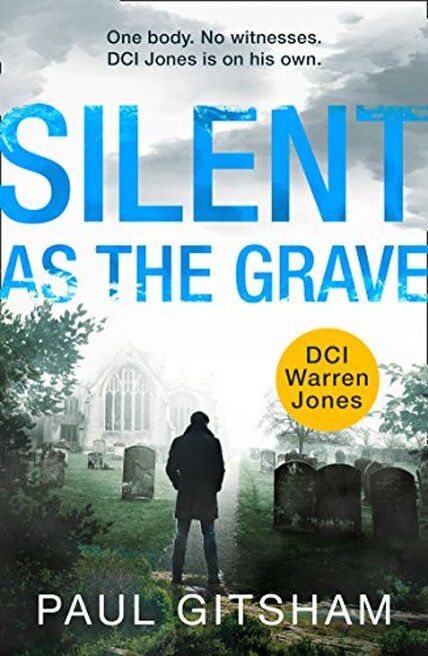
Alex: Are you a writer that plans a detailed synopsis or do you set out with a vague idea and let the story unfold as you write?
Paul: I’m really not much of a plotter. I start with a basic idea, an idea of a few key scenes and twists, and usually what I call an ‘Agatha Christie’ moment, where I break an unbreakable alibi for example. As the writer of an ongoing series, I have the basic story arcs for my key characters mapped out over the next few books, but that’s it. A page of A4 is usually pretty generous.
Then I just dive in. However, by the time I’ve finished, if you were to look at my pages of notes and research, you’d think I’d planned it all from the beginning. I haven’t, it’s grown organically. It always amuses me when somebody describes my books as ‘meticulously plotted’. They really aren’t…
Alex: Tell us about your latest novel.
Paul: Out of Sight, is the seventh in the DCI Warren Jones series, and came out in eBook, paperback and audiobook from HQ Digital in 2021.
His biggest mistake was trusting someone he shouldn’t have…When a body is found abandoned under a bridge, teeth and fingerprints removed, DCI Warren Jones and his team have little to go on. And once they finally identify the victim, the case doesn’t get any easier.
Estranged from his family but desperate to reconnect, the victim led a solitary life – apart from secretive liaisons with a series of partners he met online. Could one of them be guilty of his murder? Or does the truth lie closer to home?
The more Warren digs, the murkier the picture becomes – re-written family wills, sabotaged CCTV footage and black-market deals are just the beginning. Only one thing is for sure: whoever was behind the brutal murder, they carefully won the trust of their victim before ending his life…
Paul: I’m really not much of a plotter. I start with a basic idea, an idea of a few key scenes and twists, and usually what I call an ‘Agatha Christie’ moment, where I break an unbreakable alibi for example. As the writer of an ongoing series, I have the basic story arcs for my key characters mapped out over the next few books, but that’s it. A page of A4 is usually pretty generous.
Then I just dive in. However, by the time I’ve finished, if you were to look at my pages of notes and research, you’d think I’d planned it all from the beginning. I haven’t, it’s grown organically. It always amuses me when somebody describes my books as ‘meticulously plotted’. They really aren’t…
Alex: Tell us about your latest novel.
Paul: Out of Sight, is the seventh in the DCI Warren Jones series, and came out in eBook, paperback and audiobook from HQ Digital in 2021.
His biggest mistake was trusting someone he shouldn’t have…When a body is found abandoned under a bridge, teeth and fingerprints removed, DCI Warren Jones and his team have little to go on. And once they finally identify the victim, the case doesn’t get any easier.
Estranged from his family but desperate to reconnect, the victim led a solitary life – apart from secretive liaisons with a series of partners he met online. Could one of them be guilty of his murder? Or does the truth lie closer to home?
The more Warren digs, the murkier the picture becomes – re-written family wills, sabotaged CCTV footage and black-market deals are just the beginning. Only one thing is for sure: whoever was behind the brutal murder, they carefully won the trust of their victim before ending his life…
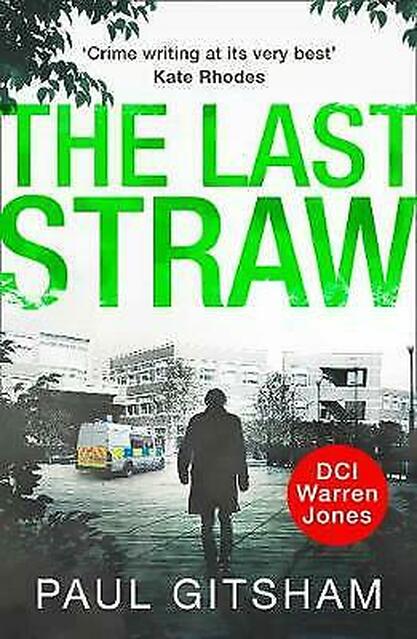
Alex: What was the first book you read?
Paul: It’s funny, I had a bit of slow start to the joys of reading. I loved stories, but my first primary school teacher had the peculiar idea that children would learn in their own time, and wouldn’t push them. So, I couldn’t really see the point in doing any more than the bare minimum (as a teacher myself, I look back now and shudder!). Fortunately, my next teacher wasn’t having any of that nonsense. By then, my poor Dad had been reading me the same old Mr Men books for ages – in exasperation he pointed out that if I learned to read, I could read myself stories whenever I felt like it. The penny dropped… by the end of that year, I’d read every book in the school and was allowed to go and use the school library, followed soon by the public library, as long as my teacher was satisfied that the books were suitably stretching. For pleasure, I started with Enid Blyton of course. The Five Find-Outers, followed by The Secret Seven, Famous Five and her adventure series. Then it was the Hardy Boys, Nancy Drew, The Three Investigators etc. I also developed a love for science fiction; imagine my excitement when I found out that Arthur C. Clarke and Isaac Asimov also wrote books for grown-ups!
Alex: How much research do you do and what does it usually entail?
Paul: It varies from book to book. For example, The Common Enemy is about far-right extremists. I did a lot of reading about them, and also had a long chat with a fellow writer who had infiltrated some of these groups. Forgive Me Father on the other hand is about secrets within the Catholic Church and is set, in part, in a ruined medieval abbey. Middlesbury Abbey is fictional, but my partner and I used that as an excuse to spend plenty of happy hours wandering around ruined abbeys and cathedrals, elements of which I incorporated into Middlesbury Abbey. I also did a lot of reading about Catholic doctrine and the dissolution of the abbeys by Henry VIII. Little of this made it into the final book, but it meant I felt more confident when I was writing.
For other books, my main research is to do with police procedure (which most of those in the know seem to think is pretty accurate) and I love reading up on forensics. I do a lot of online research for these, and also watch some of the really good UK documentaries, such as 24 Hours In Police Custody. For A Price to Pay, I researched people trafficking and modern slavery. For a couple of books, I was able to draw on my own experiences. The Last Straw is set within a university biology department. Warren's wife, Susan is a biology teacher like me, and I set A Deadly Lesson in a school.
Paul: It’s funny, I had a bit of slow start to the joys of reading. I loved stories, but my first primary school teacher had the peculiar idea that children would learn in their own time, and wouldn’t push them. So, I couldn’t really see the point in doing any more than the bare minimum (as a teacher myself, I look back now and shudder!). Fortunately, my next teacher wasn’t having any of that nonsense. By then, my poor Dad had been reading me the same old Mr Men books for ages – in exasperation he pointed out that if I learned to read, I could read myself stories whenever I felt like it. The penny dropped… by the end of that year, I’d read every book in the school and was allowed to go and use the school library, followed soon by the public library, as long as my teacher was satisfied that the books were suitably stretching. For pleasure, I started with Enid Blyton of course. The Five Find-Outers, followed by The Secret Seven, Famous Five and her adventure series. Then it was the Hardy Boys, Nancy Drew, The Three Investigators etc. I also developed a love for science fiction; imagine my excitement when I found out that Arthur C. Clarke and Isaac Asimov also wrote books for grown-ups!
Alex: How much research do you do and what does it usually entail?
Paul: It varies from book to book. For example, The Common Enemy is about far-right extremists. I did a lot of reading about them, and also had a long chat with a fellow writer who had infiltrated some of these groups. Forgive Me Father on the other hand is about secrets within the Catholic Church and is set, in part, in a ruined medieval abbey. Middlesbury Abbey is fictional, but my partner and I used that as an excuse to spend plenty of happy hours wandering around ruined abbeys and cathedrals, elements of which I incorporated into Middlesbury Abbey. I also did a lot of reading about Catholic doctrine and the dissolution of the abbeys by Henry VIII. Little of this made it into the final book, but it meant I felt more confident when I was writing.
For other books, my main research is to do with police procedure (which most of those in the know seem to think is pretty accurate) and I love reading up on forensics. I do a lot of online research for these, and also watch some of the really good UK documentaries, such as 24 Hours In Police Custody. For A Price to Pay, I researched people trafficking and modern slavery. For a couple of books, I was able to draw on my own experiences. The Last Straw is set within a university biology department. Warren's wife, Susan is a biology teacher like me, and I set A Deadly Lesson in a school.
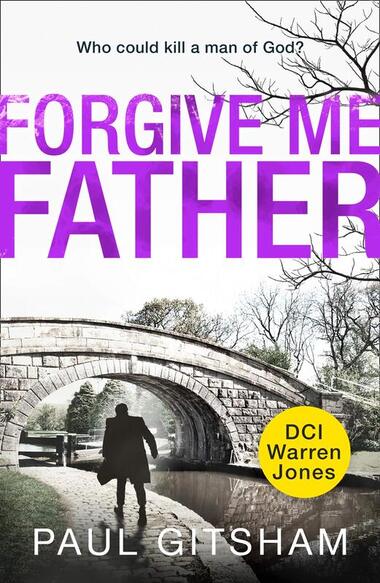
Alex: Do you ever base your characters on people you have encountered in real life?
Paul: Sort of! Some are an in-joke about former colleagues. My series regular, Crime Scene Manager Andy Harrison, is named after a colleague. For fun, I wrote the character as his diametric opposite. It took a few years before he got around to reading the books, and finally found out what his workmates found so funny about them! Another character was named after a physics teacher I worked with. His degree was actually in meteorology, and so we used to tease him and call him a geography teacher. Needless to say, when I decided to use his name in a novella, I made the character a geography teacher!
Other than that, I’m like most writers – a magpie. I incorporate bits and pieces of people I meet, and Warren Jones is basically my own wish-fulfilment. The victim in my first book, The Last Straw, was a much-reviled university professor. He was definitely an amalgam of every tosser I met or heard of during my years in academia!
Alex: Which was the last book you read that blew you away?
Paul: So many to choose from! But Imran Mahmood’s “You Don’t Know Me”, was one of the most original premises I’ve read in a long time, and I rattled through it at a rate of knots.
Paul: Sort of! Some are an in-joke about former colleagues. My series regular, Crime Scene Manager Andy Harrison, is named after a colleague. For fun, I wrote the character as his diametric opposite. It took a few years before he got around to reading the books, and finally found out what his workmates found so funny about them! Another character was named after a physics teacher I worked with. His degree was actually in meteorology, and so we used to tease him and call him a geography teacher. Needless to say, when I decided to use his name in a novella, I made the character a geography teacher!
Other than that, I’m like most writers – a magpie. I incorporate bits and pieces of people I meet, and Warren Jones is basically my own wish-fulfilment. The victim in my first book, The Last Straw, was a much-reviled university professor. He was definitely an amalgam of every tosser I met or heard of during my years in academia!
Alex: Which was the last book you read that blew you away?
Paul: So many to choose from! But Imran Mahmood’s “You Don’t Know Me”, was one of the most original premises I’ve read in a long time, and I rattled through it at a rate of knots.
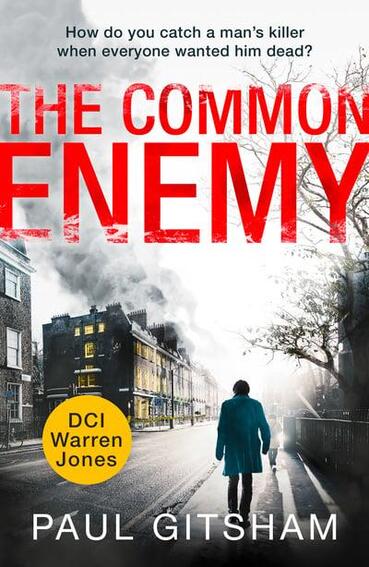
Alex: How do you market your books?
Paul: Poorly! I use Twitter, Facebook and Instagram – even LinkedIn (!) – I also have a website www.paulgitsham.com. However, until recently, I was working full-time on top of the writing, and so marketing got in the way of writing (not an uncommon dilemma). However, the explosion in online activity during the recent pandemic has meant that I have been taking part in author chats for the first time. Recently, I also organised some panels and took the lead in interviews. It’s been a lot of fun. I also started my #TuesdayTip writing blog www.paulgitsham.com/writing-tips, which I have recently expanded to include advice from other writers, as well as an occasional #RecommendedRead – no star ratings, just books that I like and recommend www.paulgitsham.com/recommended.
Alex: What are your interests aside from writing? And what do you do to unwind?
Paul: My partner and I watch far more true crime than is healthy! During the recent lockdowns, we started taking it in turns to choose a film on Friday nights, whilst Saturday is the turn of the other person to choose a board game. When everything is back to normal, I think we’ll continue this new tradition.
Paul: Poorly! I use Twitter, Facebook and Instagram – even LinkedIn (!) – I also have a website www.paulgitsham.com. However, until recently, I was working full-time on top of the writing, and so marketing got in the way of writing (not an uncommon dilemma). However, the explosion in online activity during the recent pandemic has meant that I have been taking part in author chats for the first time. Recently, I also organised some panels and took the lead in interviews. It’s been a lot of fun. I also started my #TuesdayTip writing blog www.paulgitsham.com/writing-tips, which I have recently expanded to include advice from other writers, as well as an occasional #RecommendedRead – no star ratings, just books that I like and recommend www.paulgitsham.com/recommended.
Alex: What are your interests aside from writing? And what do you do to unwind?
Paul: My partner and I watch far more true crime than is healthy! During the recent lockdowns, we started taking it in turns to choose a film on Friday nights, whilst Saturday is the turn of the other person to choose a board game. When everything is back to normal, I think we’ll continue this new tradition.
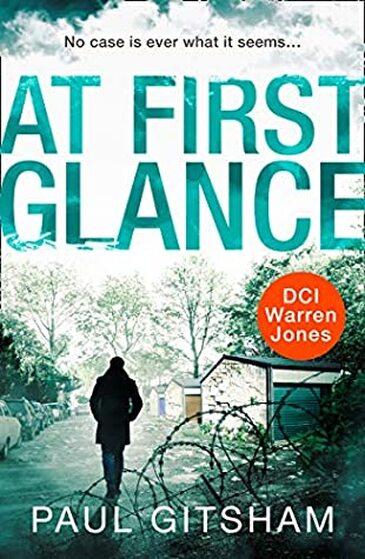
Alex: Which authors do you particularly admire and why?
Paul: How long have you got? Michael Connelly is one of the big ones for me. Quite aside from his terrific stories, I admire his sense of place. I feel as if I’ve actually visited LA and walked alongside Bosh and Haller. I am also a fan of Alex North. He really gets to the heart of a character; I thought the protagonists in both The Whisper Man and The Shadow Friend were beautifully crafted. I also admire Karin Slaughter; she consistently delivers, whether it is one of her series novels or her standalones.
Alex: Paul, it's been really interesting to hear you talk so extensively and thoughtfully about this extraordinary business of creating imaginary yet credible worlds, plots and characters. I take my hat off to you for finding the time to teach as well as write. It's a remarkable feat - particularly since you've manage to write an astonishing 12 novels.
Paul: Thank you Alex. I've enjoyed talking to you.
Paul: How long have you got? Michael Connelly is one of the big ones for me. Quite aside from his terrific stories, I admire his sense of place. I feel as if I’ve actually visited LA and walked alongside Bosh and Haller. I am also a fan of Alex North. He really gets to the heart of a character; I thought the protagonists in both The Whisper Man and The Shadow Friend were beautifully crafted. I also admire Karin Slaughter; she consistently delivers, whether it is one of her series novels or her standalones.
Alex: Paul, it's been really interesting to hear you talk so extensively and thoughtfully about this extraordinary business of creating imaginary yet credible worlds, plots and characters. I take my hat off to you for finding the time to teach as well as write. It's a remarkable feat - particularly since you've manage to write an astonishing 12 novels.
Paul: Thank you Alex. I've enjoyed talking to you.
